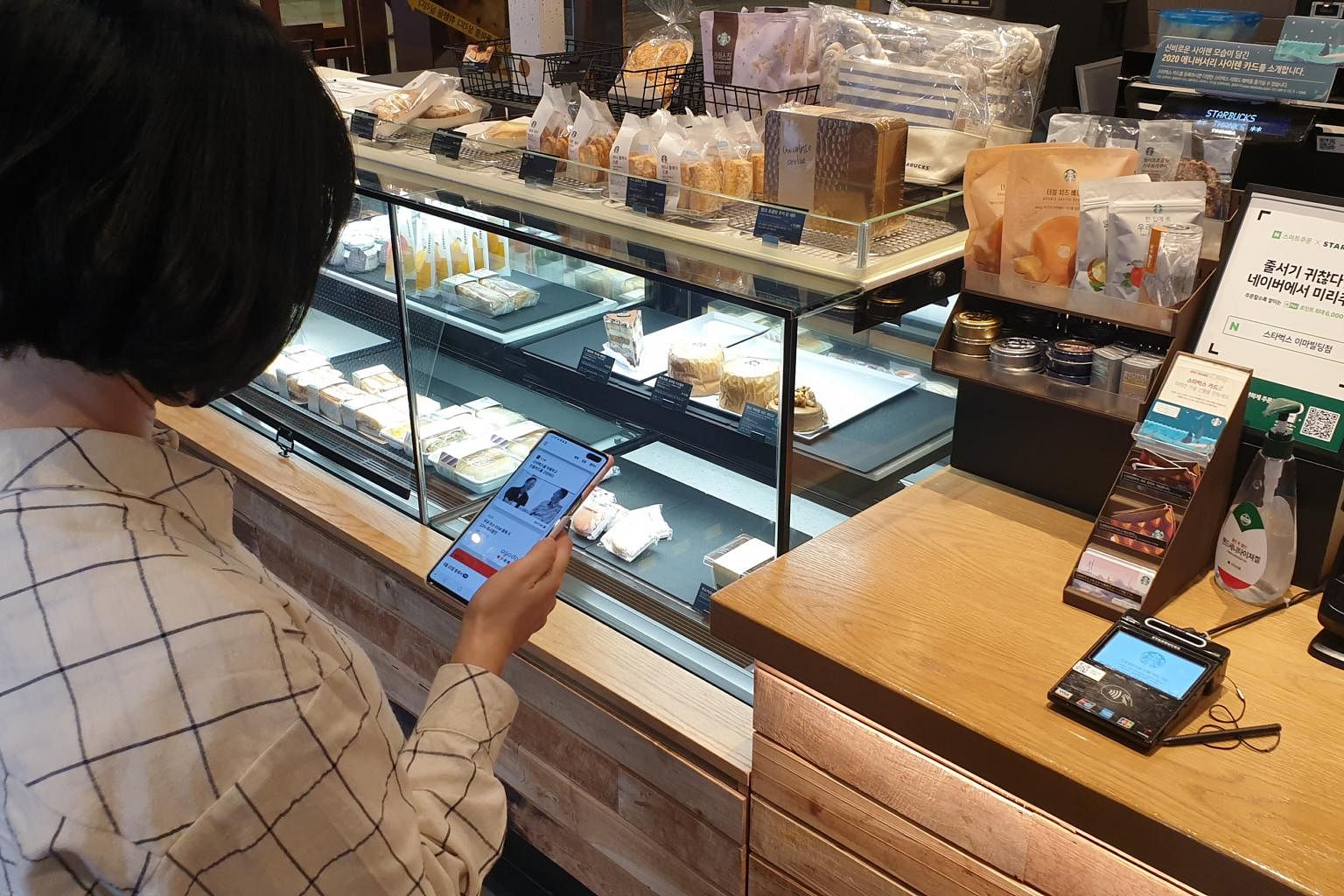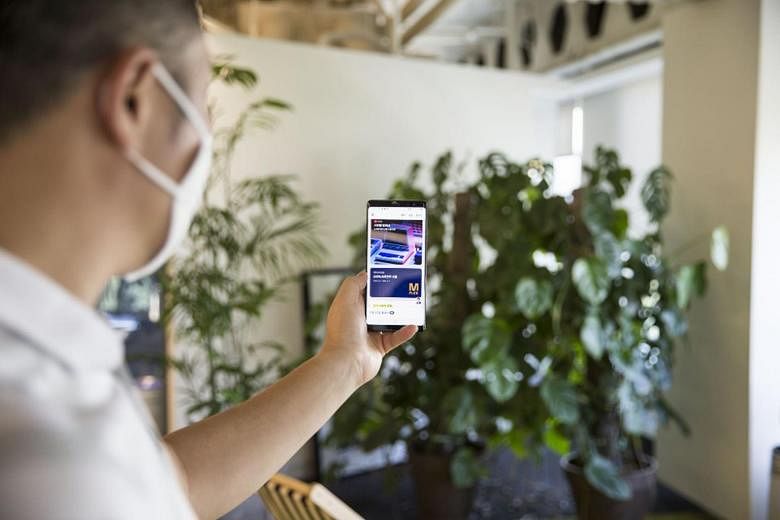SEOUL - Imagine an app for a credit card that analyses your spending, alerts you to shopping deals that you are interested in, and offers you all kinds of exciting content on "infinite scroll".
At the finger-tip, coffee lovers can easily track their spending at cafes, and pet owners will know how much they indulged on their furry friends.
And the card user will see only content that he prefers, suited to his needs.
This is "super customisation" offered by Hyundai Card, one of South Korea's largest credit card companies.
Taking a leaf from tech giants YouTube and Facebook, the company is harnessing big data and artificial intelligence to achieve the "next frontier of personalised services" and "revolutionalise the way we live".
"We aim to provide what the customer needs, based on the customer's preference," said Mr Kim Bom-shik, head of the product planning department at Hyundai Card.
Personalisation is said to be the future for the financial sector, as more tech-savvy consumers turn to apps and online services for a more tailored experience.
This can include consumer-specific alerts and offers, as well as suggestions of products or services based on usage and preference.
A 2019 KPMG report said that "new tools and technologies are enabling unprecedented customisation" in banking services, and that customers ranked banks with great personalisation capabilities as the "best in class".

"The future will be dominated by banks that go beyond 'skin deep' personalisation to embed themselves into the daily lives of their customers," the report said.
"They will know more than just account details and demographics; they will know exactly what makes their customers tick."
For Hyundai Card, this means investing more than 300 billion won (S$361 million) to reinforce data science capability and hiring more than 350 digital personnel, including app developers and user experience designers, to develop its digital products.
The company launched the 3.0 version of its app in August, working with an Israeli analytics company to develop an AI-equipped spending care service to help customers use credit cards more comfortably.
Hyundai Card is the first to use AI to analyse customer spending and gain insights about consumer behaviour, said Mr Kim.
The upgraded app also recommends products from an online mall operated by Hyundai Card and offers scrollable content tailored to the customer's needs and interests. This can include mobile games, shopping discounts, restaurant and cafe coupons and travel deals offered by Hyundai Card's various partners, and information about new financial products.
Which category appears first depends on the customer's preference and click-through habits.
"We want the scroll to be infinite like YouTube, but right now we can only offer 100 to 150 items per customer," noted Mr Kim.
"But we can provide more content if the customer uses the card more and gives us more data. The app will evolve together with the customer."
Another new function is a quiz asking customers to guess their monthly expenses and offering a comparison to other similar card users.
"We wanted to give customers something fun to do and make them aware of their spending," he said. "At the same time, we want them to know how much we understand them, and that we are here to help them make informed spending decisions."
Out of the 4 million people who use the app every month, over a million are now logging in every day - up from 500,000 early this year.
"Users are staying in the app for a longer time reading the information we provide. There's more trust in the content that we provide, and this will gain more loyalty for Hyundai Card," said Mr Kim.
He added that they are now working towards making the app more interactive, such as allowing users to give a "thumbs up" when they see content they like.
The rise of hyper-personalistion also calls into question issues of privacy invasion and possible data breaches.
When asked, Mr Kim assured that Korea has a strict personal information protection act in place, and that customers will only receive targeted marketing materials with their agreement.
The company also has security protocols in place to guard against data breaches, he added.
Office worker Kim seong-soo, 35, finds the new Hyundai Card app very friendly to use. It is like looking through a social media feed, he said.
"It is simple yet insightful. I can easily search for my expenditure record and credit card benefits, and it offers recommendations about products," he added. "It feels like I can receive what I need even before I really know what I want."


